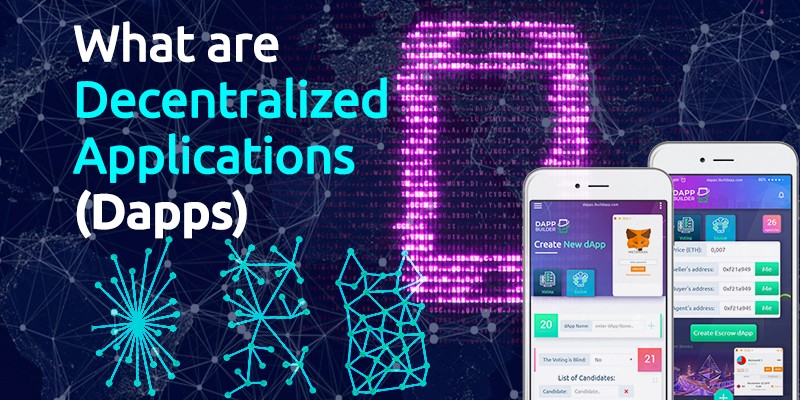The DApp Revolution
DApp is an abbreviated form for decentralized application.
A decentralized application is similar to a smart contract, but different in two key ways.
If an app=frontend+server, since Ethereum contracts are code that runs on the global Ethereum decentralized peer-to-peer network, then: DApp = frontend + contracts.
First of all, a decentralized application has an unbounded number of participants on all sides of the market. Second, a decentralized application need not be necessarily financial. Because of this second requirement, decentralized applications are actually some of the easiest things to write (or at least, were the easiest before generalized digital consensus platforms came along). For example, BitTorrent qualifies as a decentralized application, as do Popcorn Time, BitMessage, Tor and Maidsafe (note that Maidsafe is also itself a platform for other decentralized applications).

Generally, decentralized applications fall into two classes, likely with a substantial gray area between the two. The first class is a fully anonymous decentralized application. Here, it does not matter who the nodes are; every participant is essentially anonymous and the system is made up of a series of instant atomic interactions. BitTorrent and BitMessage are examples of this. The second class is a reputation-based decentralized application, where the system (or at least nodes in the system) keep track of nodes, and nodes maintain status inside of the application with a mechanism that is purely maintained for the purpose of ensuring trust. Status should not be transferable or have de-facto monetary value. Maidsafe is an example of this. Of course, purity is impossible – even a BitTorrent-like system needs to have peers maintain reputation-like statistics of other peers for anti-DDoS purposes; however, the role that these statistics play is purely in the background and very limited in scope.
An interesting gray area between decentralized applications and “something else” is applications like Bitcoin and Namecoin; these differ from traditional applications because they create ecosystems and there is a concept of virtual property that has value inside the context of this ecosystem, in Bitcoin’s case bitcoins and in Namecoin’s case namecoins and domain names.
A DApp has its backend code running on a decentralized peer-to-peer network. Contrast this with an app where the backend code is running on centralized servers.
A DApp can have frontend code and user interfaces written in any language (just like an app) that can make calls to its backend. Furthermore, its frontend can be hosted on decentralized storage such as Swarm or IPFS.
